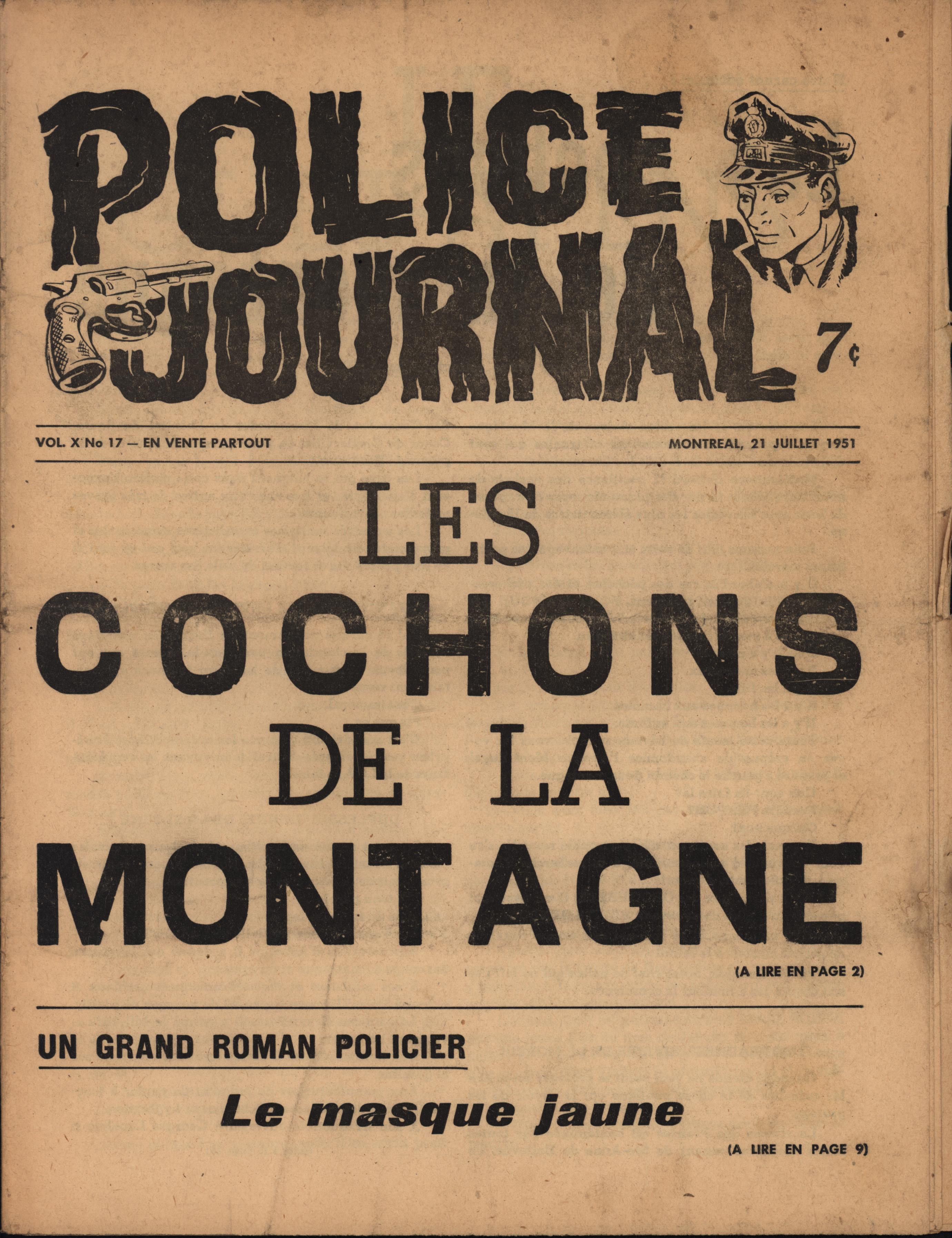

It is this question that this issue primarily addresses.
#Photo police journal how to#
Yet despite the diversity of interdisciplinary insights into police reform initiatives across the globe, the question of how to establish effective, legitimate, and accountable, policing remains elusive. From anthropology to conflict studies to law and beyond, scholars and practitioners are continuously trying to analyse and bring about positive change in relationships between police and citizens. The urgent need to better understand and address policing is further evidenced by the wide array of academic disciplines and fields of scholarship tackling the subject. Although demands for transformative police reform has grown, the responses aimed at true transformation remain limited. As the global experiences touched upon in this special issue show, the quest towards better policing (and whatever that may be) is a difficult and confrontational challenge, but one that needs to be faced. In this special issue, which draws on papers largely written before the 2020 events, we argue that policing practices should be studied critically and that reform needs to be considered through a transformative lens that employs a multi-agency and long-term approach. ‘Blue Lives Matter’ and ‘All Lives Matter’ (see Lynch, 2018 Solomon and Martin, 2019 Mason, 2020), further testifying the multiplicity of perspectives on what policing should and can be. Calls for ‘defunding’ have been further problematized by counter-voices, such as Grassroots activists and social movements” ( Akarsu 2020), and essentially, are about devolving responsibilityįor public safety to local communities. Calls for ‘de-funding’ have been further problematized by counter-voices, such as Grassroots activists and social movements, and essentially, are about devolving responsibility for public safety to local communities. Instead of technocratic fixes of policy experts, ‘defund’ and ‘abolish’ calls centre on demands of For others, it serves as an aspirational vision, involving a possibility to think of public safety outside of punitive security logics and apparatuses. For some, abolitionism entails the literal end of traditional police institutions-with its funding withdrawn and infrastructures dissolved.

As the quote above demonstrates, this has prompted a rethinking of the role of the police in society from the ground up and has resulted in many demands to defund, dismantle, or abolish police departments (see McDowell and Fernandez, 2018 Ralph, 2020 Rushin and Roger, 2020).

In addition to shining a light on the disproportionate use of force against people of colour, the BLM movement has highlighted the institutional and structural racism shaping such acts, thereby reaffirming existing understandings that police behaviour and practices are shaped mainly by larger societal structures and conditions. The footage went viral and resulted in (non)violent protests across the USA and spread to cities around the world, making it the most broad-based civil rights movement in US history ( Ralph, 2020 Parsons et al., 2021). A video showed four police officers detaining him, while he was handcuffed and pinned on the ground, face down and begging for his life and telling the cops: ‘I can’t breathe’. The BLM-protests gained further momentum after George Floyd’s death in May 2020, yet another unarmed Black male killed by the police. This is largely due to the scope and impact of the Black Lives Matter (BLM) movement, a social movement founded in 2013 as a response to the death of Trayvon Martin, an unarmed African American teenager ( Bonilla and Jonathan, 2015 Chernega, 2016 Crusto, 2020 Parsons et al., 2021). Although such hostile interactions are not a new phenomenon, recent events have heightened their public awareness and global presence. Weekly news reports from around the world tell of unrest between individuals, communities, and police officers. Transformation that will hold law enforcement accountable for the violence they inflict, transformation of this racist system that breeds corruption, and transformation that ensures our people are not left behind’ ( Black Lives Matter, 2020).


 0 kommentar(er)
0 kommentar(er)
